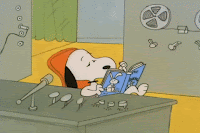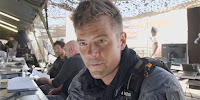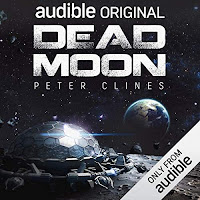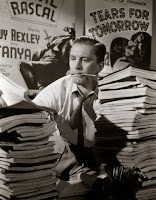The problem here is action. Most people see that word and think of… well, all that stuff we talked about last time. Car chases. Ninjas fighting cyborg lizard men. Giant two-headed shark attacks!
So, naturally, this is what they begin with. They come up with a reason to begin with a bank heist. Or a plane crash. Or an armed home invasion. Which is kinda weird in a romantic Christmas story, but you’ve gotta start somewhere, right? And we need to start with action!
To be clear, this almost never works.
But every time, these action-packed events involve people we don’t know and have no investment in. Which immediately lessens the action because it’s not involving anyone I care about, it’s just… happening. To put it in current events terms, we’ve all seen the news about hundreds of thousands of people dying across the globe from Covid-19—heck, we’re past a hundred thousand deaths just here in the
Weirdly enough, as a side note… a lot of time the people in these opening action scenes tend to be awful, so I don’t even have basic human empathy for them. I want them to die, and that can switch the whole tone of my opening. Far too often, these events won’t even end up tying back to the story. They’re just little disconnected blips with characters we’ll never see or hear about again.
When I try to start with action like this, I’m just delaying the actual starting point of the story. And I’m doing it in a way that alienates my audience, too. Why would I want to do that?
So… why does start with action keep getting parroted around?
More importantly, I think, is they’re actions we can all immediately understand, and they’re actions that can easily tell us something about the people involved in them.
Take mowing the lawn for example. How old is Wakko? Is he mowing his lawn or someone else’s? Why is he mowing it? How much effort is it for him? What’s he thinking about while he’s doing it? These are all really easy questions to answer while he’s pushing the mower back and forth. So something’s happening, we’re meeting the character, and maybe even getting to set up some simple, basic stakes.
And we want to have something happening. Something that falls in the middle ground between daydreaming and demon ninjas roaring down the street on AI-guided murdercycles. I mean, just off the top of my head, let’s look at some action-filled books and movies and see how they start…
Captain America: The Winter Soldier begins, as I’ve often pointed out, with the two main characters doing their morning jogs.
Sarah Kuhn’s Heroine’s Journey begins with the main character reshelving books in a book store while she complains about her older sister not taking her seriously
They’re catching our interest and drawing us in. Getting us invested. Making us want to read more.
Which is a pretty good way to start a book.
Until then, go write.











-days-of-summer.jpg)